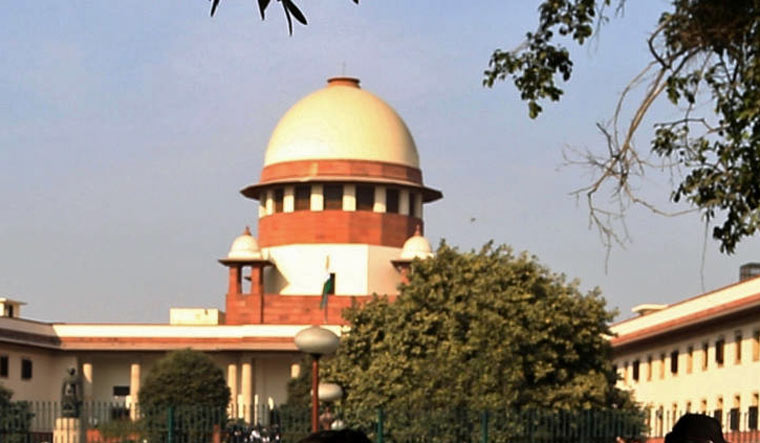The Supreme Court on Thursday pronounced a landmark ruling on adultery in India. The apex court has struck down 158-year-old Section 497 of the IPC and ruled that adultery is no longer a crime.
The five-judge constitution bench headed by Chief Justice Dipak Misra has said that Section 497 which deals with adultery is "absolutely manifestly arbitrary". He stated that adultery can be a ground for divorce, but not a criminal offence and that thinking of adultery as a criminal offence is a retrograde step.
Also read
- May consider Kejriwal’s interim bail plea as hearing in money laundering case could extend: SC
- Supreme Court questions timing of Kejriwal's arrest, seeks ED’s reply
- Kejriwal arrest: SC asks why Delhi CM didn't approach trial court for bail
- SC seeks ED's reply on ex-Jharkhand CM Hemant Soren's interim bail plea
Misra said that the legal sovereignty of one sex over another is wrong and read out further observations that seemed women-friendly. The CJI further added that the husband is not the master of a woman. Misra observed that women can’t be asked to think and do according to the will of society and that adultery is not a crime in China, Japan and in many western countries.
Read out the judgment written for himself and Justice A.M. Khanwilkar, Misra said that Section 497 violated a woman's right to dignity which infringed upon Article 21 of the Constitution of India. The Section 497 exempted the wife from punishment and stated that the wife should not be even treated as an abettor. He went on to say that any system or law which affects the individual dignity of women in a civilised society invites the wrath of the Constitution.
The section punished the man for having sex with the wife of another man. However, the sexual act was exempted from punishment if it was performed with the consent or connivance of the husband of the woman. The court observed that the section hence treated the woman as the property of the husband.
However, the court clarified that if an act of adultery leads the partner to commit suicide, the adulterous wife or husband could be prosecuted for abetment of suicide under Section 306 of the IPC.
The hearing in the case by the bench, which also comprised justices R.F. Nariman, A.M. Khanwilkar, D.Y. Chandrachud and Indu Malhotra, went on for six days and had commenced on August 1.
Section 497 of the 158-year-old Indian Penal Code says: "Whoever has sexual intercourse with a person who is and whom he knows or has reason to believe to be the wife of another man, without the consent or connivance of that man, such sexual intercourse not amounting to the offence of rape, is guilty of the offence of adultery."
On January 5, the apex court had referred to a five-judge Constitution bench the plea challenging the validity of the penal law on adultery.
The court had taken a prima facie view that though the criminal law proceeded on "gender neutrality", the concept was absent in Section 497.


